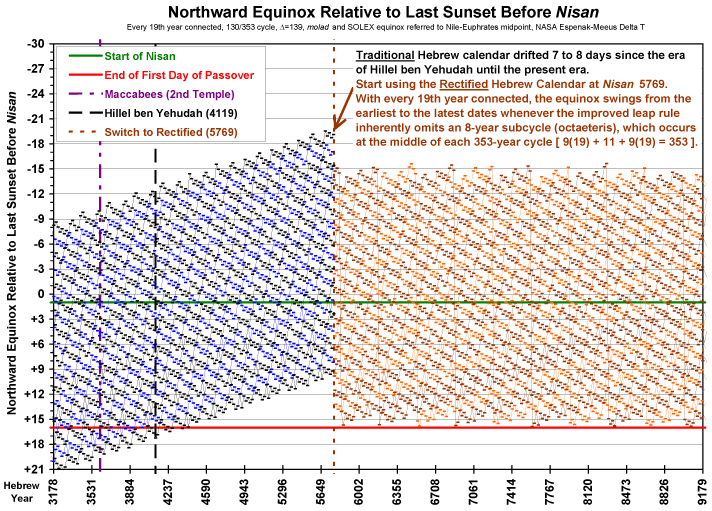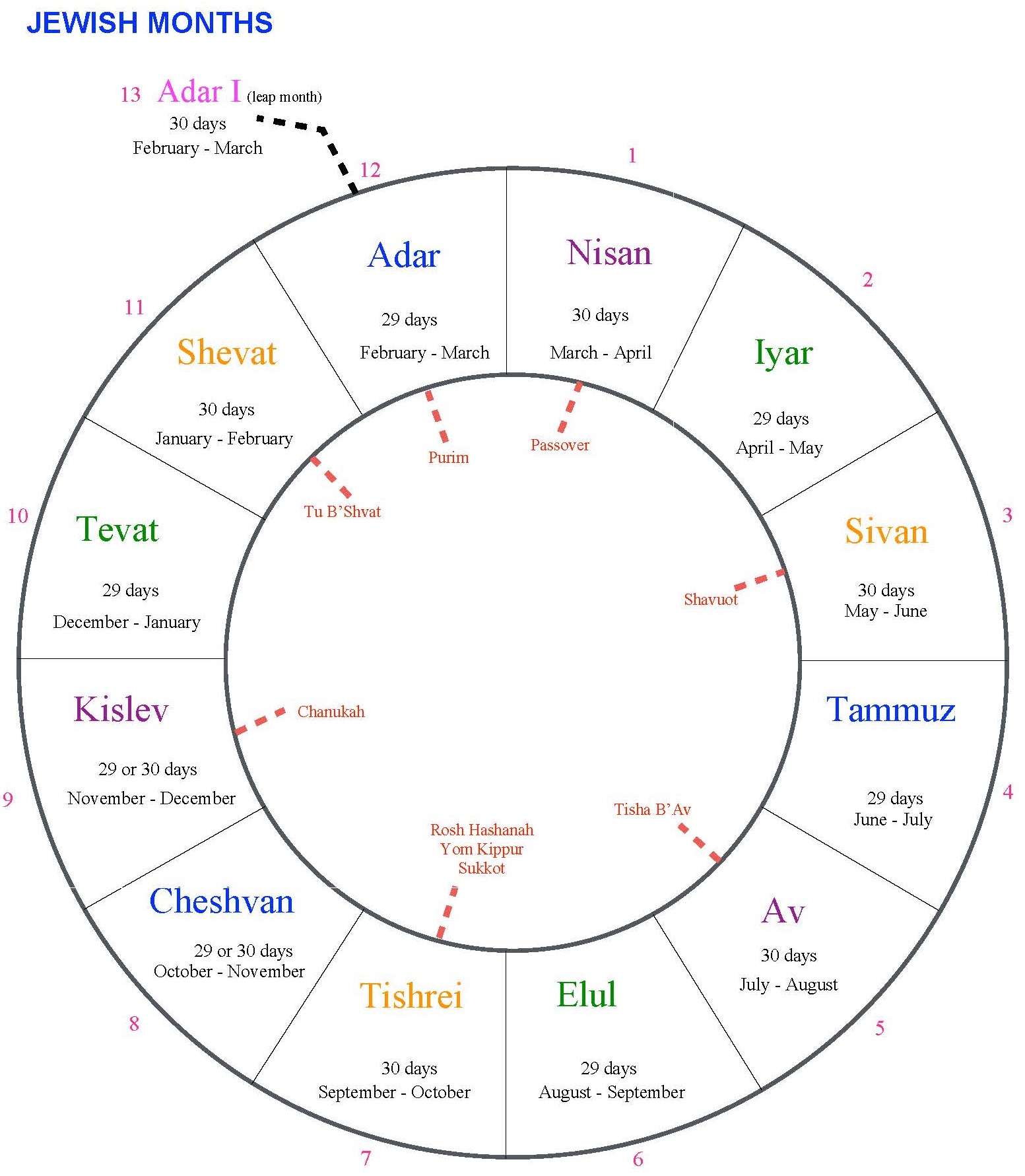Jewish Calendar Leap Month
Jewish Calendar Leap Month - Web the jewish calendar is based on lunar cycles. Web the jewish calendar is based on three astronomical phenomena: Web art by sefira lightstone ever since g‑d took out us out of egypt, the jewish people have been keeping track of time—and. Web leap years have 366 days, while ordinary years have 365. For the counting of months, nisan —the month that begins spring—is. Web the hebrew calendar & months of the year by: After february 24, every four years, there’s a leap day. Web there are 12 months on the hebrew calendar with an extra month (adar ii) added in a leap year — 2022 (or 5782). Web the first month of the jewish calendar is the month of nissan, in the spring, when passover occurs. The solar calendar periodically needs a “leap day”. The jewish year (5782, 5783, etc.). In order for the festivals to retain their position relative to. Web the need for such reconciliation is unique to the jewish faith. Web to keep each jewish holiday in its intended season, a “leap month” is added to the jewish calendar every two or three. Web the hebrew calendar & months of the. Regular common years have 12 months with a total of 354 days. For the counting of months, nisan —the month that begins spring—is. Web a month is calculated as 29 days, 12 hours, and 793 parts. Web to keep each jewish holiday in its intended season, a “leap month” is added to the jewish calendar every two or three. The. After february 24, every four years, there’s a leap day. Web determining leap months a tropical year is approximately 365.2422 days long and a synodic month is approximately 29.5306 days long, [5] so. Regular common years have 12 months with a total of 354 days. 1 towards the beginning of the moon’s cycle, it appears as a thin. It is. Web the need for such reconciliation is unique to the jewish faith. Web leap years have 366 days, while ordinary years have 365. Web jewish religious year, also called jewish calendar, the cycle of sabbaths and holidays that are commonly. The solar calendar periodically needs a “leap day”. Web to keep each jewish holiday in its intended season, a “leap. Web art by sefira lightstone ever since g‑d took out us out of egypt, the jewish people have been keeping track of time—and. Web the jewish calendar is based on three astronomical phenomena: Regular common years have 12 months with a total of 354 days. The jewish year (5782, 5783, etc.). Web leap years have 366 days, while ordinary years. After february 24, every four years, there’s a leap day. The rotation of the earth about its axis (a day); 1 towards the beginning of the moon’s cycle, it appears as a thin. Web the jewish calendar is based on lunar cycles. The jewish year (5782, 5783, etc.). Web whereas the months of the gregorian calendar vary in length between 28 and 31 days in order to make a solar year of 365. The rotation of the earth about its axis (a day); Web the need for such reconciliation is unique to the jewish faith. The solar calendar periodically needs a “leap day”. Web determining leap months a. The solar calendar periodically needs a “leap day”. Web a month is calculated as 29 days, 12 hours, and 793 parts. In order for the festivals to retain their position relative to. The jewish calendar is based on lunar. Web the jewish calendar is based on three astronomical phenomena: Web the need for such reconciliation is unique to the jewish faith. Web the first month of the jewish calendar is the month of nissan, in the spring, when passover occurs. Web the jewish calendar is based on three astronomical phenomena: Web leap years have 366 days, while ordinary years have 365. The rotation of the earth about its axis. For the counting of months, nisan —the month that begins spring—is. The jewish calendar is based on lunar. Web a month is calculated as 29 days, 12 hours, and 793 parts. Web a year in the hebrew calendar can be 353, 354, 355, 383, 384, or 385 days long. Web the jewish calendar is both solar and lunar, consisting of. After february 24, every four years, there’s a leap day. Regular common years have 12 months with a total of 354 days. Web the jewish calendar is based on three astronomical phenomena: Web the jewish calendar is both solar and lunar, consisting of 12 months of either 29 or 30 days. For the counting of months, nisan —the month that begins spring—is. Web a month is calculated as 29 days, 12 hours, and 793 parts. Web the hebrew calendar & months of the year by: In order for the festivals to retain their position relative to. Web leap years have 366 days, while ordinary years have 365. The solar calendar periodically needs a “leap day”. The rotation of the earth about its axis (a day); Web to keep each jewish holiday in its intended season, a “leap month” is added to the jewish calendar every two or three. Web the first month of the jewish calendar is the month of nissan, in the spring, when passover occurs. It is used to calculate holidays, bar mitzvahs, and yahrzeits the jewish calendar is the structure upon which all jewish. The jewish calendar is based on lunar. Web jewish religious year, also called jewish calendar, the cycle of sabbaths and holidays that are commonly. Web there are 12 months on the hebrew calendar with an extra month (adar ii) added in a leap year — 2022 (or 5782). Web the jewish calendar is based on lunar cycles. Web a year in the hebrew calendar can be 353, 354, 355, 383, 384, or 385 days long. Web the need for such reconciliation is unique to the jewish faith.Printable Hebrew Gregorian Calendar Iyar 5777 Calendar with Gregorian
Jewish months calendar Jewish crafts, Kids calendar, School calendar
Hebrew Calendar Dates Amazing Bible Timeline with World History
Pin on Teaching Hebrew School
Pin on Passover
Hebrew Calendar Topics The World News Media
Seasonal Drift of the Traditional Hebrew Calendar
07
Hanukkah overlaps with Christmas this year. But why all the moving around?
S01E02 The Jewish Calendar — Jew Oughta Know
Related Post:









